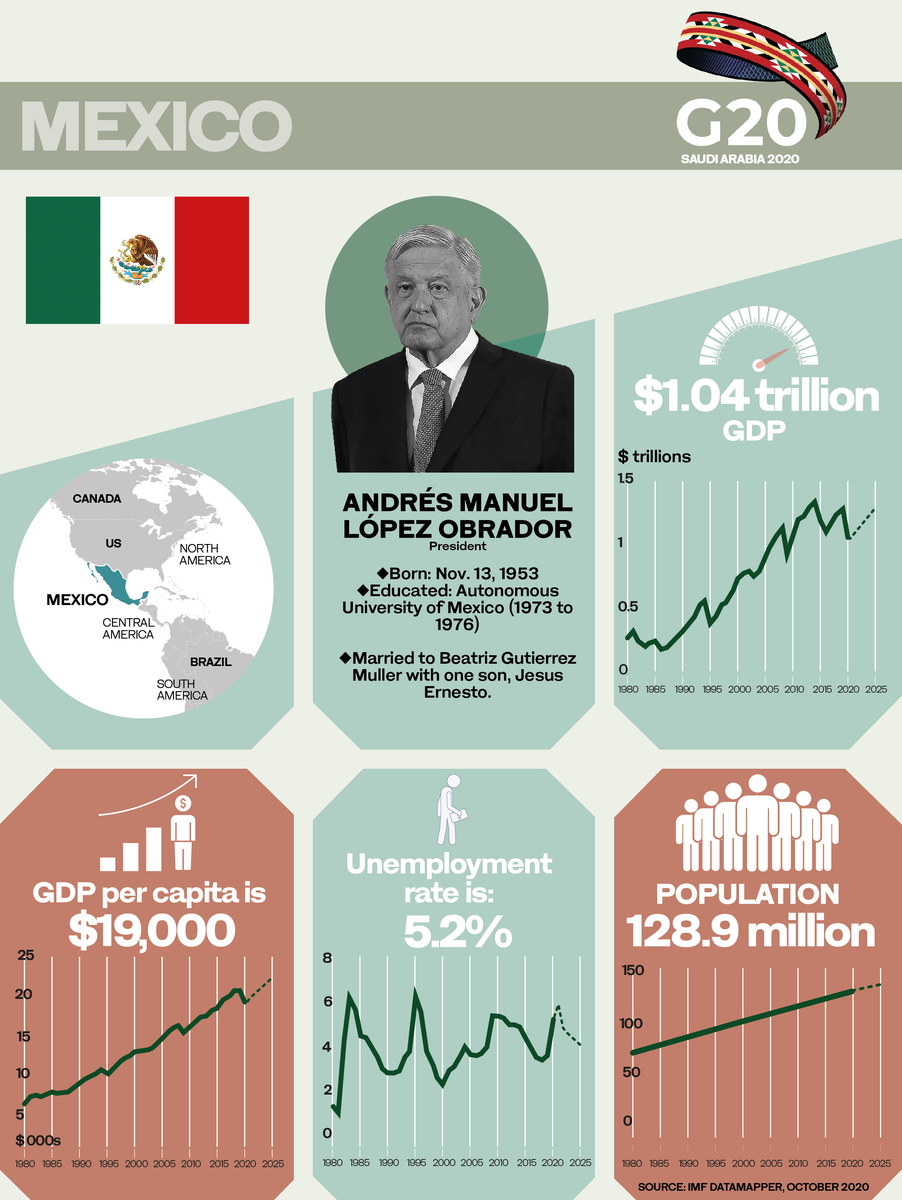Common solutions to global problems — why multilateralism is imperative today

https://arab.news/42han
The start of a new decade came with one of the greatest challenges humanity has ever faced: The discovery of the new coronavirus disease (COVID-19) and its rapid spread around the world. The pandemic has confirmed that humans today are connected like never before and that our interactions, although positive in many ways, are not exempt from vulnerabilities.
In a matter of weeks, what originally was confined to one region spread across the world, affecting all economic sectors. The health systems of many countries were put to the test, as were production processes, trade, tourism, global finance and even interpersonal relationships, as social interactions were restricted.
The profound impact of COVID-19 and the threat posed by its continued spread have required the sum of individual and global efforts on an unprecedented scale. Multilateralism is more important than ever to collectively respond to this crisis and pave the way for inclusive and sustainable recovery.
A large number of countries, international organizations, academic institutions, research centers and individuals have joined forces and made important contributions, from efforts to produce a vaccine and treatments for the virus to the development of policies geared toward recovery. Although there is significant progress to date, it is clear that there is still much to do and that, as a global society, we have a huge challenge ahead of us to control the pandemic and counter its effects.
At this crossroads, the G20 — the most important forum for international economic cooperation — is called on to play a leading role. Its members must act in such a way as to create an environment of inclusive and sustainable global growth and development.
Mexico commends Saudi Arabia’s extraordinary leadership while presiding over the G20 in these extraordinary circumstances and acknowledges the decision of the G20 Saudi Presidency to hold the Leaders’ Summit in a virtual format. We understand that it was not an easy call, but we appreciate Saudi Arabia’s wise consideration, according the highest importance to the health and safety of both guest delegates and hosts.
Saudi Arabia can count on Mexico’s continued constructive engagement to help build consensus.
Aníbal Gómez Toledo
From the outset, Mexico has been supportive of the theme identified by the Saudi Presidency: “Realizing opportunities of the 21st century for all.” We agree that one of the G20’s overarching goals must be to reduce inequalities within and among our societies, with special emphasis on the most vulnerable, and to build more equitable, inclusive and sustainable societies in which everyone can live, work and thrive. This is all the more important as we relaunch economic growth. Saudi Arabia, as well as the rest of the G20, can count on Mexico’s continued constructive engagement to help build consensus and drive cooperation forward.
Mexico supports a clear and unambiguous collective commitment to ensuring universal and equitable access to medicine, medical equipment and supplies, as well as vaccines and treatments when they become available. One of the main messages that President Andrés Manuel López Obrador conveyed to the G20 in the March Extraordinary Virtual Leaders’ Summit was that vaccines and treatments should be considered a global public good. This also resulted in a UN General Assembly resolution submitted by Mexico to promote universal access to medical supplies, vaccines and treatments, which was adopted by consensus with the co-sponsorship of 179 countries.

On this note, at the beginning of October 2020 the government of Mexico signed three pre-purchase contracts with pharmaceutical companies AstraZeneca, CanSino Biologics and Pfizer to acquire sufficient vaccine doses to cover, together with those acquired through the COVAX facility, up to 116 million Mexicans. We have also reached agreements with several pharmaceutical companies to host their Phase III clinical trials in Mexico.
Mexico prioritizes the continued support to international trade and investment, keeping global supply chains functioning. We must ensure that emergency measures put in place to protect health are temporary and avoid unnecessary interference with international traffic and trade, as agreed in the 2005 International Health Regulations.
Mexico believes there is a need to create more jobs and growth and to ensure that these are better jobs with more equitable access in terms of gender, age, education and urbanization levels. We also need to pay special attention to underemployment and the informal economy.
Multilateralism and international cooperation are more important than ever to address these pressing global challenges and move toward economic recovery. We are confident that, under Saudi Arabia’s guidance, the G20 will be able to provide a robust, comprehensive collective response.
It is evident that in the face of global challenges, we require wholesome diagnoses that generate articulate and comprehensive responses from a global perspective.
The appropriate platforms to promote this systematized work are the multilateral structures that, although the vast majority of them were created in another context 75 years ago, today are the best tools to channel, process and enhance countries’ individual and collective efforts for the benefit of the world population.
Looking ahead, to achieve a better and more sustainable future for all, the G20 countries will have to work together to ensure the timely and full implementation of the 2030 Agenda and its Sustainable Development Goals. These include ending poverty; ensuring good health, well-being and quality education; achieving gender equality; combating climate change; reducing inequalities; and promoting peace and justice.
• Aníbal Gómez Toledo is the ambassador of Mexico to Saudi Arabia









































